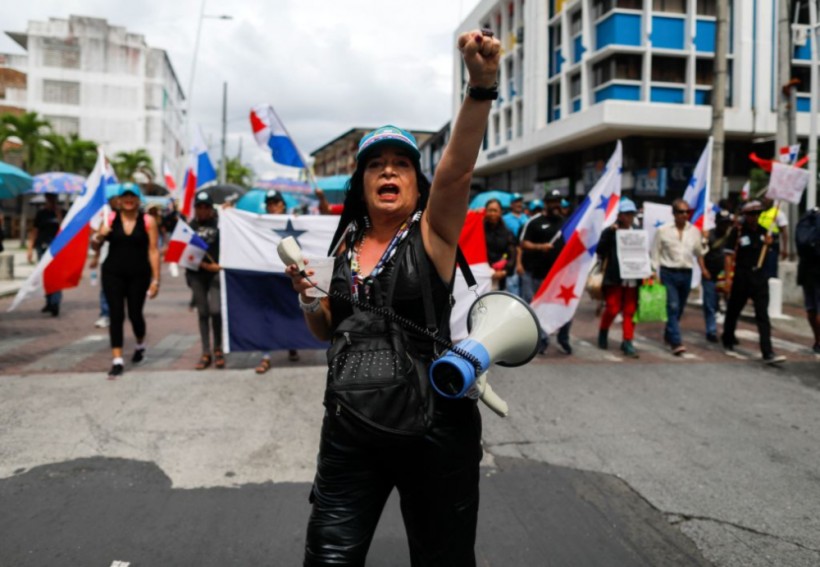Panama Anti-Mining Protesters To Suspend Roadblocks for 12 Hours

Indigenous activists, who have brought Panama's major roadways to a standstill in protest against a Canadian mining company, have declared a temporary suspension of their blockades for 12 hours on Monday, AP reports.
This move is intended as a gesture of goodwill toward citizens affected by the ongoing demonstrations.
The focal point of the Panama anti-mining protesters is the demand for the government to nullify a contract permitting First Quantum Minerals, a Canadian mining company, to continue its operations at an open-pit copper mine nestled in a biodiverse jungle.
The road closures, which have persisted for weeks, have led to shortages of fuel and food in various regions, prompting the protesters to allow access between 6 a.m. and 6 p.m. on Monday in northern Panama.
Juan de Dios Camaño, the secretary general of the Association of Chiricano Educators, emphasized in a video posted on the group's Instagram account that the conflict is not among the people themselves but against what he referred to as "criminals" within the government.
He confirmed that the protest would resume at full intensity after the 12-hour suspension.
READ NEXT: Panama Slams Colombia Due to Inaction in Flow of Migrants at the Darien Gap
The Panama Anti-Mining Protest
The protests ignited late last month over a 20-year mining contract, extendable for an additional 20 years, raising concerns about environmental impact and Indigenous rights.
The demonstrations gained international attention following the reported deaths of two Panama anti-mining protesters last week, with videos on social media suggesting an armed individual attempting to breach a barricade and protesters lying lifeless on the ground, ABC News noted.
Police arrested a suspect in the incident but did not disclose their identity.
While the Panamanian government argues that the mine is a vital source of employment, Indigenous groups contend that the mining activities jeopardize the delicate ecosystems they safeguard.
Unrest of this magnitude is uncommon in Panama, but it aligns with a growing emphasis on environmental protection in Latin America, home to some of the world's most diverse ecosystems.
Opposition to large-scale projects is particularly fervent in rural Indigenous communities, which often bear the brunt of climate change and environmental degradation.
Canadian mining companies, accounting for around 41% of large mining enterprises in Latin America, frequently face criticism for environmental damage and a lack of accountability.
Critics of the road blockades assert that they inflict more harm on citizens than on the mining company itself.
A Panamanian business association estimates a daily loss of $80 million to local businesses due to the disruptions.
In response to the prolonged protests, the police announced plans to forcibly dismantle the road barricades.
Police Commissioner Elmer Caballero stated, "We are going to use the necessary force so that the roads are opened and the well-being of all citizens is achieved."
Panama President Defends Mining Deal
President Laurentino Cortizo defended the mining deal, emphasizing its potential to create jobs and generate revenue for Panama, per CNN.
The mining industry, especially the copper mine, had been a rare economic bright spot for Panama amid slow tourism recovery and reduced traffic through the Panama Canal due to the pandemic and drought.
Despite concessions from the government, including a moratorium on future metal mining and a proposed nationwide referendum, the crisis persists.
Panama's Supreme Court declared a previous contract for the copper mine unconstitutional in 2017, leading to renegotiations.
Now, opponents are hopeful that the Supreme Court's scrutiny of the contract's legality might once again thwart the controversial deal.
READ MORE: Mexico: 123 Migrants Found Trapped in Trailer
This article is owned by Latin Post.
Written by: Bert Hoover
WATCH: Motorist fatally shoots two climate protesters blocking Panama road - From The Independent
Subscribe to Latin Post!
Sign up for our free newsletter for the Latest coverage!














